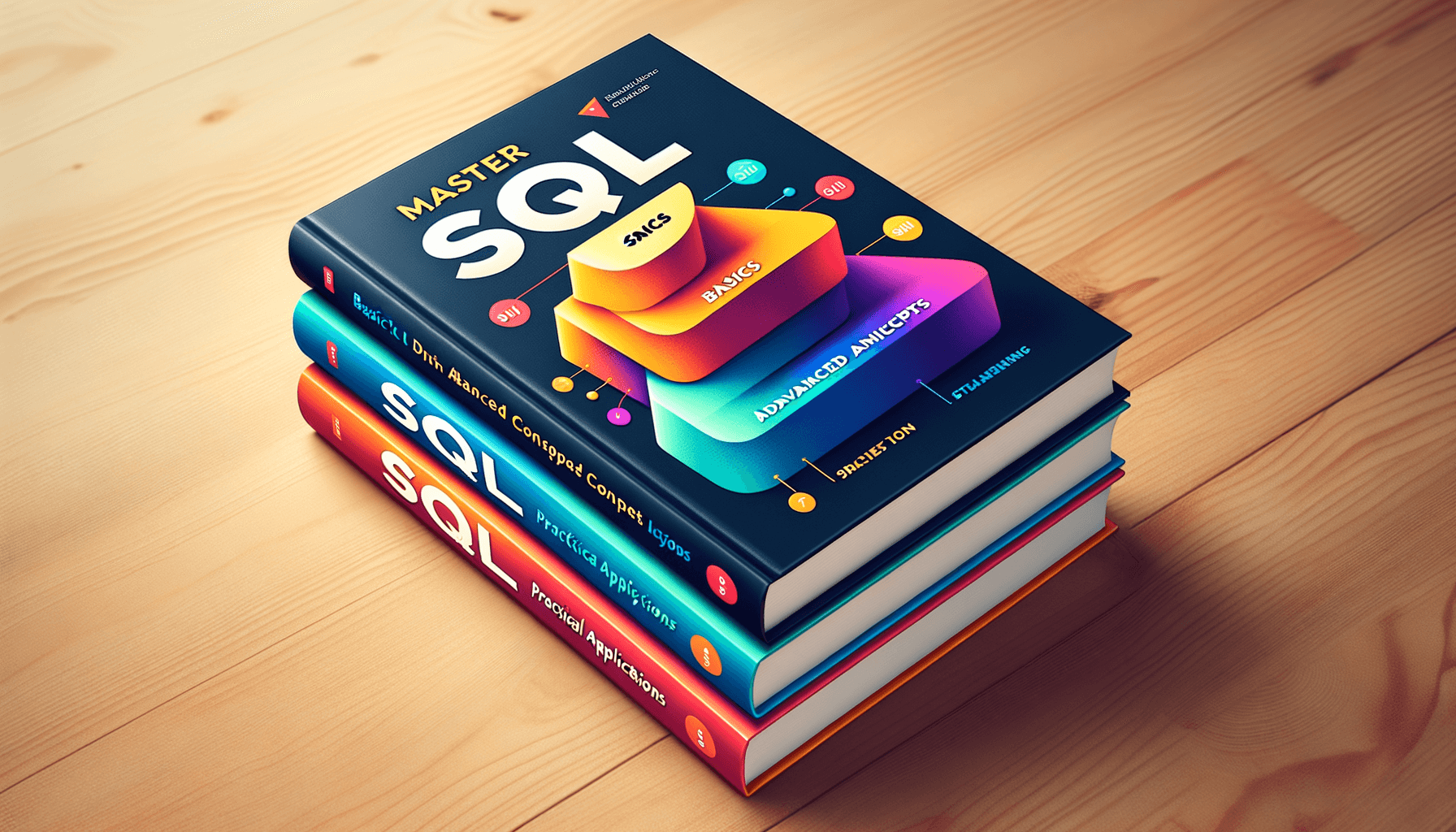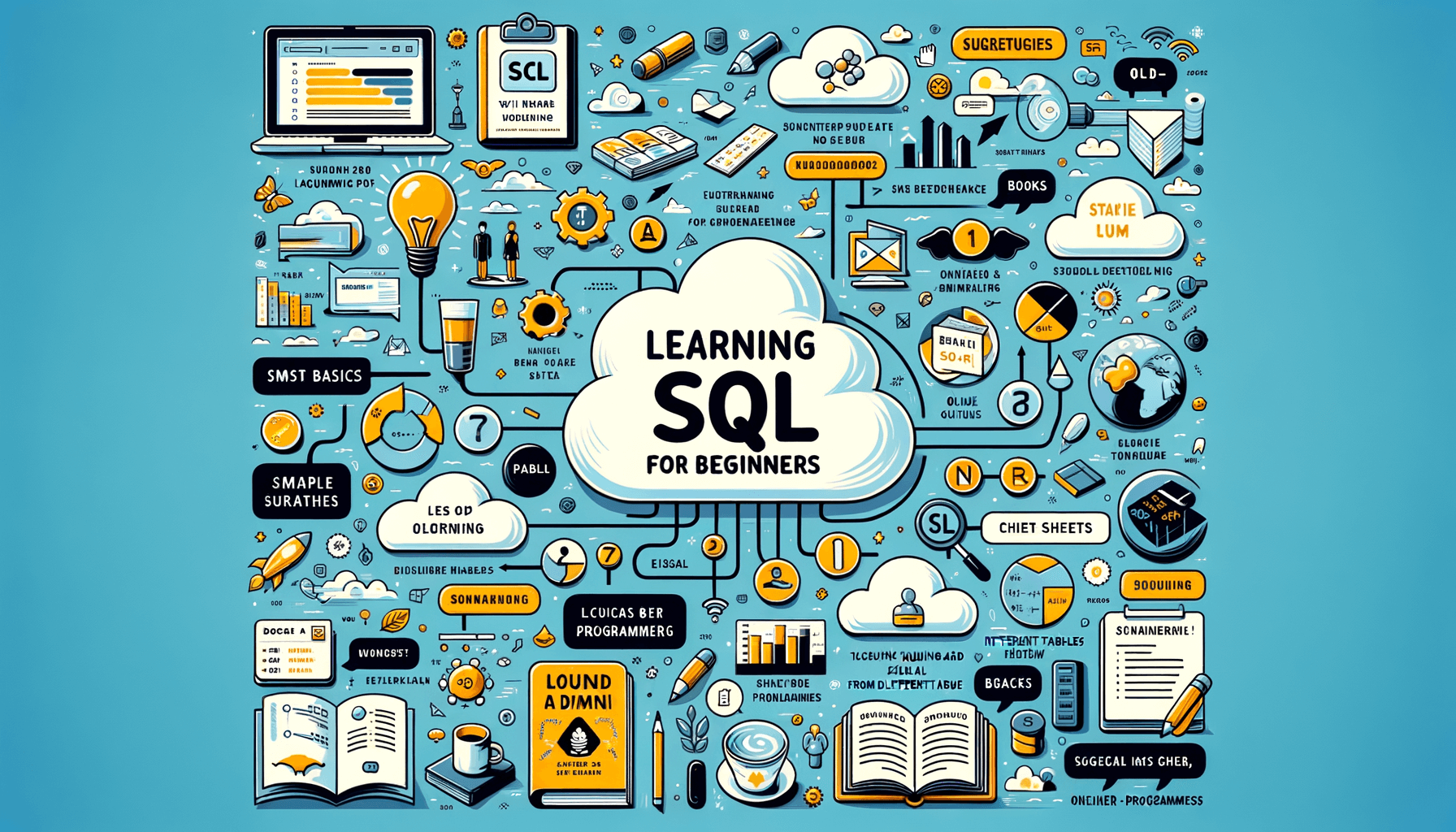A big variety of articles and resources

Mastering SQL Quickly: A Comprehensive Guide
 Sia Author and Instructor
Learn SQL
Sia Author and Instructor
Learn SQL
7 minute read
SQL, or Structured Query Language, is the backbone of database management. This guide will help you quickly learn SQL, from the basics to more advanced topics. Whether you're a beginner or looking to sharpen your skills, this comprehensive guide will provide you with the knowledge and tools you need.
Key Takeaways
- SQL is essential for managing and querying databases.
- Start with the basics like SQL structure, commands, and data types.
- Use online resources and real-world practice to learn faster.
- Advanced topics like subqueries and performance optimization are crucial for mastery.
- Join communities and attend workshops for extra support and learning.
Understanding the Basics of SQL
The Structure of SQL Queries
When we start learning SQL, it's important to understand the basic structure of SQL queries. Every SQL query follows a specific order: SELECT, FROM, WHERE, GROUP BY, HAVING, and ORDER BY. This order helps us retrieve and organize data efficiently.
Common SQL Commands
SQL commands are the building blocks of any SQL operation. Some of the most common commands include SELECT, INSERT, UPDATE, DELETE, and CREATE. These commands allow us to interact with the database, whether we're retrieving data or making changes to it.
Data Types in SQL
In SQL, data types define the kind of data that can be stored in a table. Common data types include INT for integers, VARCHAR for variable-length strings, and DATE for dates. Understanding these data types is crucial for designing effective databases.
Mastering the basics of SQL is the first step towards becoming proficient in database management. By grasping the structure of queries, familiarizing ourselves with common commands, and understanding data types, we lay a strong foundation for more advanced SQL skills.
Efficient Techniques for Learning SQL
When learning SQL, we can enhance our skills by utilizing various efficient techniques. Setting up our SQL environment is crucial for a smooth learning experience. Online resources and tutorials provide valuable guidance for mastering SQL concepts. Additionally, practicing with real-world datasets helps solidify our understanding of SQL operations.
Advanced SQL Concepts for Rapid Mastery
Subqueries and Nested Queries
Subqueries, also known as inner queries, are queries within another SQL query. They help us break down complex problems into smaller, manageable parts. Mastering subqueries can significantly enhance our ability to handle intricate data retrieval tasks. Nested queries, on the other hand, involve placing one query inside another, allowing for more advanced data manipulation.
Joins and Unions
Joins and unions are essential for combining data from multiple tables. Joins allow us to link tables based on a related column, while unions merge the results of two or more queries into a single result set. Understanding the different types of joins, such as inner joins, left joins, and right joins, is crucial for effective data analysis.
Indexes and Performance Optimization
Indexes are special database objects that improve the speed of data retrieval. By creating indexes on frequently queried columns, we can significantly reduce query execution time. Performance optimization involves various techniques, including indexing, query rewriting, and database tuning. Mastering performance and query optimization is key to ensuring our SQL queries run efficiently.
Efficient SQL queries not only save time but also enhance the overall performance of our database systems.
Practical Applications of SQL Skills
Database Design and Normalization
When we design a database, we need to think about how to organize the data. This is where normalization comes in. Normalization helps us reduce redundancy and improve data integrity. We break down large tables into smaller ones and define relationships between them. This makes our database more efficient and easier to manage.
Data Analysis and Reporting
SQL is a powerful tool for analyzing data. We can use it to pull specific information from large datasets. For example, we can find out which products are selling the most or which customers are the most active. By writing effective SQL queries, we can generate detailed reports that help us make informed decisions. This is especially useful in business settings where data-driven decisions are crucial.
Automating Tasks with SQL Scripts
One of the great things about SQL is that we can automate repetitive tasks. By writing SQL scripts, we can schedule regular updates, backups, or data imports. This saves us a lot of time and ensures that our data is always up-to-date. Automation also reduces the risk of human error, making our processes more reliable.
Mastering these practical applications of SQL not only makes us more efficient but also opens up new opportunities in various fields. Whether it's database management, data analysis, or automation, SQL skills are invaluable.
Overcoming Common Challenges in SQL Learning
When learning SQL, we may encounter various challenges that can hinder our progress. One common obstacle is debugging SQL errors, which requires careful attention to detail and problem-solving skills. Another challenge is optimizing query performance to ensure efficient and fast data retrieval. Understanding complex queries can also be daunting, but with practice and patience, we can overcome this hurdle. It's important to remember that overcoming these challenges is a natural part of the learning process, and each obstacle we face helps us grow our SQL skills.
Leveraging Community and Professional Resources
In our journey to master SQL quickly, we recognize the importance of connecting with others in the field. Engaging with SQL forums and groups allows us to seek advice, share knowledge, and build a supportive network. Attending workshops and webinars provides valuable opportunities to learn from experts and stay updated on industry trends. Networking with SQL professionals opens doors to new collaborations and career growth. By actively participating in these community and professional resources, we enhance our SQL skills and broaden our understanding of database management.
Discover how to make the most of community and professional resources to boost your skills and career. Our website offers a variety of courses and expert guidance to help you succeed. Don't miss out on this opportunity to grow and learn. Visit us today and start your journey!
Conclusion
Mastering SQL may seem like a big task, but with the right approach, it can be done quickly and effectively. This guide has walked you through the basics, advanced techniques, and practical applications of SQL. By practicing regularly and applying what you've learned, you'll become proficient in no time. Remember, the key to mastering SQL is consistency and practice. Keep experimenting with different queries, and don't be afraid to make mistakes. Each error is a learning opportunity. With dedication and effort, you'll soon find yourself comfortable and confident in using SQL for various data tasks.
Frequently Asked Questions
What is SQL?
SQL stands for Structured Query Language. It's a language used to manage and manipulate databases.
Is SQL hard to learn?
SQL is considered easier to learn compared to other programming languages. With practice, you can get the hang of it quickly.
What are some common SQL commands?
Some common SQL commands include SELECT, INSERT, UPDATE, DELETE, and CREATE.
How can I practice SQL?
You can practice SQL by using online platforms, working with real-world datasets, or setting up your own database environment.
What are joins in SQL?
Joins are a way to combine rows from two or more tables based on a related column between them.
Why is SQL important?
SQL is important because it is widely used for managing data in various applications, from small websites to large enterprise systems.
Related Articles

3 Juicy Secrets Behind Sluggish SQL!!
5 minute read

Can I learn SQL without any programming knowledge?
12 minute read

How Difficult Is SQL to Learn? A Comprehensive Guide
8 minute read




